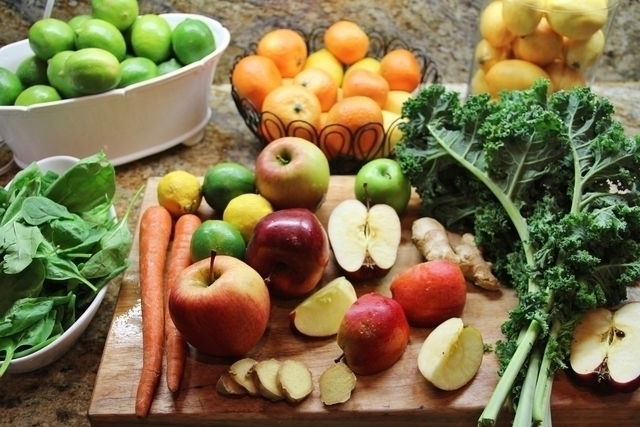A diabetic diet aims to reduce the intake of simple carbohydrates (like refined sugar and honey), refined flour (found in white bread and white pastas) , fats (like fried foot and butter) and fatty protein (like meat, eggs and cheese). Excessive consumption of these foods can trigger blood sugar spike, causing imbalances in diabetics.
Diabetic diets should prioritize the intake of food that is rich in fiber like fruit with the peel, fresh vegetables and whole grains. These should be consumed in moderation, however. Even if they are healthy, excess intake can also cause elevated sugar levels. You should also give preference to food with healthy fats like olive oil, and lean protein, like white fish and chicken.
You should also aim to have 4 to 6 meals per day, 2 to 4 hours apart, to avoid episodes of low blood sugar. You may be experiencing low blood sugar, or hypoglycemia, if you have symptoms like dizziness, fainting or even seizures. Diabetics should also exercise within 2 hours of eating to avoid hypoglycemia when working out.

What to eat
Diabetics should eat food that is rich in fiber, lean protein and good fats, like:
- Whole grains: especially whole wheat flour and rice, whole grain pastas, oatmeal and quinoa
- Legumes: like beans, soybeans, chickpeas, lentils and peas
- Vegetables: preferably fresh veggies, like lettuce, tomato, arugula, chard, pumpkin and onion
- Lean meats: like white fish, chicken, lean cuts of beef
- Fruit: especially fresh fruit which can be eaten whole or sliced, like orange, papaya, peach, pineapple, pear and tangerine
- Healthy fats: like avocado, coconut, and vegetable oils (like extra virgin olive oil and avocado oil)
- Nuts and seeds: like chestnuts, peanuts, hazelnuts, nuts and peanuts
- Milk and dairy products: preferable skim products that are unsweetened, like skim milk, Greek yogurt, and white cheeses like ricotta and cottage cheese
Best fruits to eat
Although they should be a part of your diet, fruit should be consumed in small quantities because they contain natural sugars. You should have one portion of fruit per meal. These are some guidelines in terms of quantities:
- 1 medium piece of whole fruit, like an apple, banana, orange, tangerine or pear
- 2 thin slices of a large fruits, like watermelon, melon, papaya or pineapple
- 1 handful of small fruits, like 8 grapes or cherries
- 1 tablespoon of dried fruit, like raisins or dried plums
In addition, you should avoid consuming fruit together with high-carb food, like white rice, bread and sweets.
Food to avoid
Food that is high in sugar or simple carbohydrates should be avoided by diabetics. Examples include:
- Sugar and sweets in general
- Honey, fruit jello, jellies, marmalade, pastries and cookies
- Chocolate and gummies
- Sweet drinks, like soda, processed juices and chocolate milk
- Tubercles, like potato, sweet potato, and yams, as these are high in carbs and should be consumed in small portions
- Processed meat, like prosciutto, turkey slices, hot dogs, sausage, bacon, mortadella and salami
- Alcoholic drinks, like beer, wine and liquor
Yacon, a potato-like root vegetable, is very low in calories and rich in prebiotic fibers that help to manage sugar levels. This is a great option for diabetics.
It is important to read label information carefully before purchasing food, as sugar can be hidden with names like glucose, corn syrup, fructose, maltose, and maltodextrin.
Meal plan example for diabetics
The following table demonstrates a 3-day meal plan for diabetics:
This meal plan is just an example of what you can include in your diet. For optimal management of your diabetes, you should consult a registered dietitian so that a thorough assessment can be done. An RD can create a more personalized, custom meal plan fr you.






























